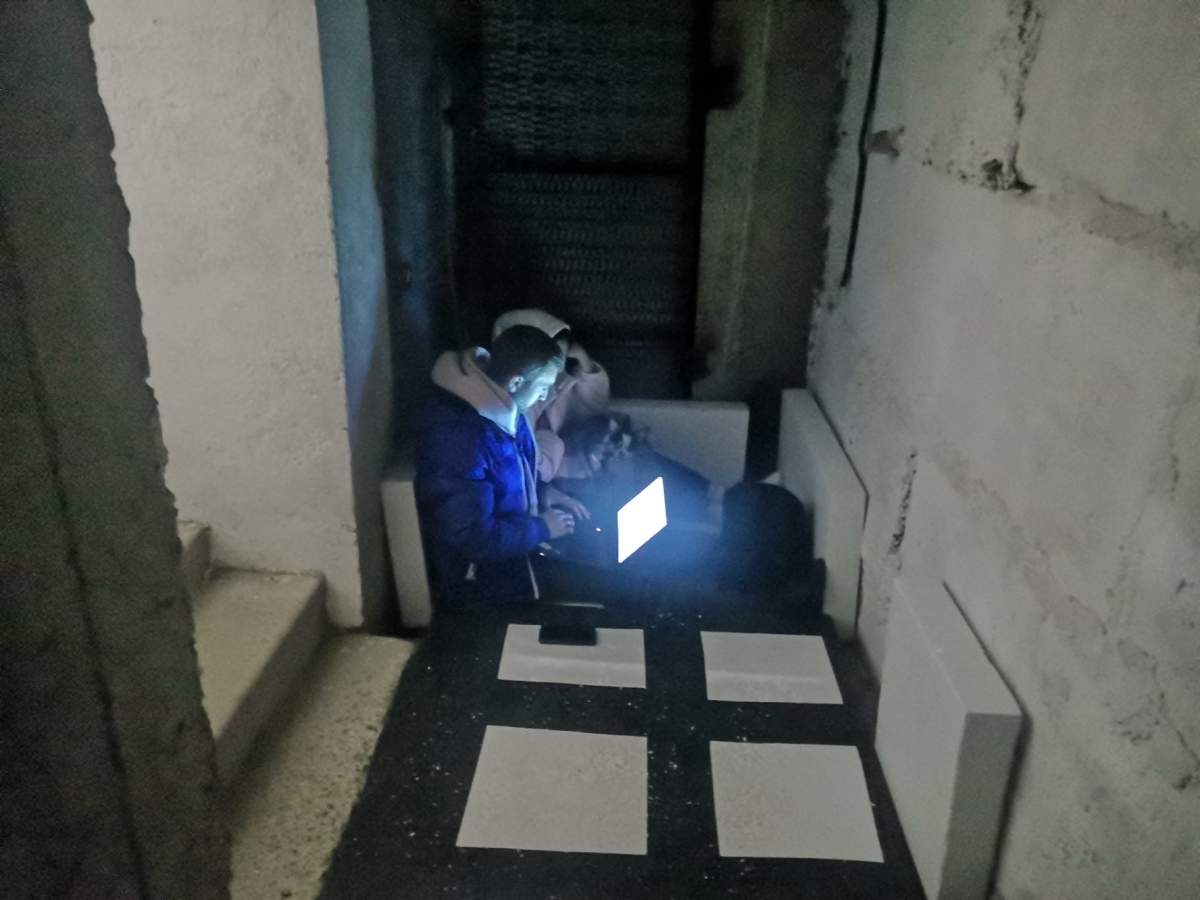Sirens blare as Svitlana Matviyenko teaches a critical media analysis class from her hometown of Kamianets-Podilskyi.

Poor Internet connections due to damaged infrastructure have made Zoom calls difficult, but the assistant professor at Simon Fraser University in B.C. has found other ways to keep her students up to speed, while sheltering in war-torn Ukraine.
“I changed this course and moved it into asynchronous format,” Matviyenko told Global News. “Now, instead of having those face-to-face conversations, we communicate through Google Docs.”
Matviyenko travelled to Ukraine in February last year after more than a year away from family due to the COVID-19 pandemic. She stayed to care for her mother, who broke her spine.
When tensions in the region escalated, Matviyenko decided — against the wishes of her parents and employers — not to evacuate. She said her mother has apologized repeatedly for being the reason she stayed, but Matviyenko has reassured her other factors contributed to her choice.
“I’m here, I can say something about the situation, I can write something about the situation, which I do in a daily basis,” she explained. “Somehow with all these things, I feel like I am where I should be.”
Kamianets-Podilskyi is a small town in southwestern Ukraine, which remains one of the safest parts of the country amid Russia’s violent and unprovoked invasion. The attack, launched by Russian President Vladimir Putin on Feb. 24, has resulted in close to 700 reported civilians deaths, including several journalists.

Get breaking National news
Some three million Ukrainians have fled their homes, about 10,000 of whom are now in Kamianets-Podilskyi, said Matviyenko.
“There were some minimal rocket strikes, but the civilian infrastructure hasn’t been damaged or anything,” she said. “The siren, which is quite aggressive obviously, is the only thing that kind of breaks though our everyday experience.”
As war unfolds around her, Matviyenko said she has been able to incorporate the conflict into her lessons about propaganda, manipulation, misinformation and disinformation. She said she hopes the course will be memorable for the students, and raise new critical questions about the themes they explore.
“This is, in fact, a very learning moment for me and them,” she explained. “In a certain way, all this made our theories that we discuss alive to the extent that you can never imagine.”
The class of eight graduate studies, she added, is aware of that if sirens go off during a lesson, Matviyenko may need to sign off temporarily and go downstairs.

Jiaqi Wen, one of her students, said the class worries about their Matviyenko’s safety, but has learned a lot by studying the conflict as a real-time example of some of their academic research topics. Wen, a first-year PhD student in communication studies under Matviyenko’s supervision, has helped organize the class’s current online format.
“The militarization of information is always a very important topic in media and communication studies,” she told Global News.
“Not only did I learn so much knowledge in the field of communications and media theories but also I really appreciate her courage to step out to document so many realistic details during this war time.”
In between teaching, Matviyenko said she is caring for her two parents, whose health has been compromised by the stress of the invasion. Personally, she said she has been able to keep her own emotions “repressed.”
“Maybe after the war I will pay for that, I know such things happen,” she said. “So far, I have so minimal panic, probably just the first time I heard the siren. Other than this, my emotions are flat and I’m quite thankful for that.”
Matviyenko said she is fielding dozens of media calls to keep her busy, and supporting other residents of their building. She’s also keeping a “war diary” to inform people of the subtle nuances of the experience.











Comments